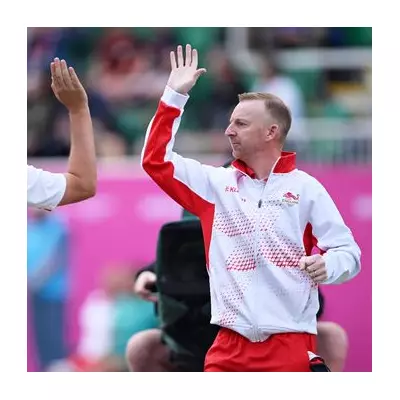
The brutal reality of contact sports has been laid bare by former rugby league star Brendan Hall, who at just 59 years old faces a future stolen by chronic traumatic encephalopathy (CTE). The once formidable athlete now struggles to remember watching his own daughters grow up, his memory ravaged by the invisible wounds of his sporting career.
The Unseen Injury That Changed Everything
Hall's diagnosis came after years of concerning symptoms that crept insidiously into his life. What began as occasional memory lapses escalated into significant cognitive decline, leaving the former sportsman grappling with moments from his children's lives that should have been permanently etched in his mind.
"I look at photographs of my daughters growing up and I simply don't remember being there," Hall reveals, his voice heavy with the weight of his confession. "Those precious moments that every parent treasures - they're just gone."
A Career Built on Toughness Now Haunted by Its Consequences
During his playing days, Hall embodied the toughness that rugby league celebrates. The knocks, the collisions, the head impacts - all were considered part of the game. Players were expected to shake them off and continue, with little understanding of the long-term damage being accumulated with each blow.
Now, medical experts confirm what Hall and his family have feared for years: the repeated head trauma sustained during his career has resulted in CTE, a degenerative brain disease found in athletes with a history of repetitive brain injuries.
The Devastating Toll on Family Life
For Hall's family, the diagnosis provides painful clarity about the changes they've witnessed in their husband and father. The memory gaps extend beyond sporting moments to the most intimate family occasions - birthdays, school events, holidays - all fading from his recollection like photographs left in the sun.
His wife describes the heartbreak of realizing that shared memories have become one-sided, with Hall unable to recall experiences that shaped their family's story.
Wake-Up Call for Rugby League and Contact Sports
Hall's case has sent shockwaves through the rugby community, prompting urgent calls for improved safety protocols and greater awareness of head injuries. Former teammates and opponents are now confronting the sobering possibility that they too might be carrying similar time bombs in their brains.
Medical professionals are using Hall's story to highlight the critical need for:
- Stricter concussion protocols during games
- Better education for players about head injury risks
- Improved long-term medical support for retired athletes
- Increased research funding for CTE and related conditions
A Future Defined by What's Been Lost
At 59, Hall should be enjoying retirement and creating new memories with his family. Instead, he faces a progressive condition with no cure, watching the past disappear piece by piece while grappling with an uncertain future.
His story serves as both a cautionary tale and a powerful call to action for sports organizations worldwide to prioritize player safety over tradition and toughness.
"If my experience helps prevent one other family from going through this nightmare, then sharing my story will have been worth it," Hall says, determined to find purpose in his personal tragedy.





